Staying Fit

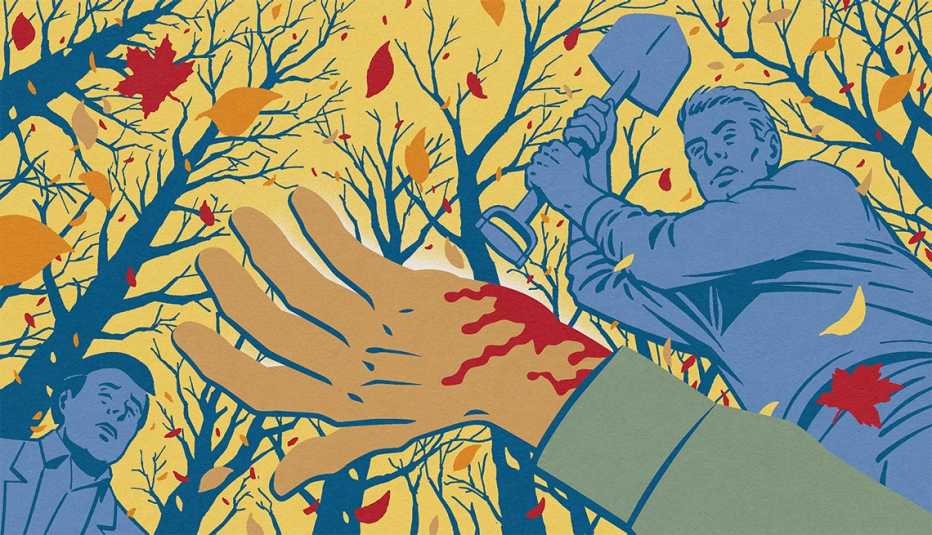
Prologue
I’m afraid.
I’m afraid, and I don’t know why.
I glance around out my windshield. If I’m in any danger at all it’s from this road I’m bouncing along on, a rutted indentation in the leafy forest floor that looks like it was last traveled by covered wagons. At any moment the two-track might fade away like an old rumor and then I’ll just be driving cross-country through the Michigan woods in an Oldsmobile station wagon, plowing into trees and rocks. I’m alone and if I break an axle it will be a long hike back to the highway.
But that’s not what’s bothering me. The vehicle I’m driving was built by General Motors during what must have been a national steel surplus—the front end sticks out like the prow of a battleship. It looks as if it were designed to run into things. I’m not afraid of crashing.
No, this is more basic, more primitive, a chilling call from somewhere in my deep subconscious that startles my pulse rate and causes my eyes to widen involuntarily.


AARP Membership— $12 for your first year when you sign up for Automatic Renewal
Get instant access to members-only products and hundreds of discounts, a free second membership, and a subscription to AARP the Magazine.
Just as I crest a small rise I ease my foot onto the brake, coming to a groaning halt.
There is absolutely nothing to see but acres of stunning oak and maple trees, lit up by a blazing autumn sun and waving their branches in the gentle breeze as they drop their leaves to the forest floor in an audible rain of color. I am deeply committed to a road to nowhere and can’t reverse course save by driving backward for at least four miles—I doubt my car would forgive me, and I know my neck wouldn’t. But that’s what my instincts are urging me to do: back up. Get out. Escape, an inner voice whispers.
Escape from what?
After a time I overrule my instincts and push ahead, rolling my eyes as if I have a passenger to whom I am apologizing for such squeamishness. It’s a beautiful day, and the property I’m heading out to show is a pretty piece of land on the river—the leaves will be dancing by on the clear water in a colorful flotilla. I was looking forward to it until I came down with a case of the jitters.
At a sharp bend I see something that gives me a start: two men standing beside a pickup truck. They both raise their heads and stare at me as I bounce past, not reacting at all to my attempt at a jaunty wave. I know one of them, it occurs to me, but for some reason I can’t think of the name. From their surprised expressions, I can tell that neither of them is the person I’m meeting—besides, my prospect said he’d bring his wife.
After less than ninety more yards the road ends and I’ve arrived at my destination: the remains of a cabin that burned down nearly ten years ago. Rusted bedsprings and flattened tin cans among the broken glass tell the story of a place that nobody bothered to rebuild after some campers apparently got the bright idea of starting a fire in a chimney full of debris. Now the chimney is all that’s left, crumbling with age but still standing defiant. I wheel my car through the yellow weeds and stop where the front door used to be. When I shut off the engine the resulting quiet makes me want to turn it back on. I’m still that uneasy. Still don’t know why.
I slide out of the car, hesitate, and then walk a few paces to peer at the rusted handle of an old-fashioned icebox lying by itself in the grass. There’s not much else to look at except the river, just ten yards across at this point, so I stroll down to its banks and stare into the dark-green water.
A flash of gold catches my eye. Curious, I reach for it, the current numbingly cold against my wrist.
I’m holding a class ring: Kalkaska High School. It’s probably valuable to someone—I decide to put it in my pocket and drop it off at the principal’s office the next time I am in that small town. The ring has initials stamped into the inside. Someone would probably like to have it back. My resolve to turn it in makes me feel good about myself, a mission with unselfish aim.
I climb back to the flattened, burned-out footprint of the cabin. The couple I’m meeting isn’t here yet: I hope they aren’t intimidated by the sad shape of the road and are back at the turnoff, trying to decide whether to risk their car’s suspension. I don’t want to spend any more time here alone than I have to.
I whirl and gasp, then laugh weakly. The two men by the truck have followed me on foot, and are marching toward me now with oddly serious expressions. Perhaps they believe I am trespassing; I will have to explain my business.
“Hi there,” I call, clearing my throat. “Incredible day, isn’t it?”
They are less than twenty yards away. The one I know—now what is his name?—is average height, midthirties. It strikes me that the reason I can’t remember what to call him is because he looks different; he has a full head of jet-black hair now, whereas the last time I saw him his scalp was covered with only a few wisps. A toupee. I must remember not to stare when I am talking to him, even though it looks as if he’s covered his head with a dead house cat.
The toupee guy’s companion is short and muscular, with green eyes and skin still dark from a summer working out of doors. He looks like a laborer, one of the men I’ve seen engaged in an interminable road project in town, and as if to dress the part he carries a short shovel in his hands.
The one I know exchanges a look with the other as they close the gap between us. Neither of them answers.
And that’s when it hits me: It’s these men I’m afraid of. I fling an arm up just as the laborer swings his spade at me.
I catch the blade of the shovel with my forearm and crash against the side of my car, gasping. The other one is reaching for me but I keep spinning, trying to ignore the pain. I fall to the ground and roll and the shovel misses me, biting dirt instead.
They are both right there but the one with the toupee slips a bit in the mud and that is all I need to leap to my feet and run, my numb arm flailing uselessly at my side. They are right behind me, making their first sounds as they grunt and gasp in pursuit, but then after twenty, thirty yards, they fade away.
I’m in shock, but out of the fog of my confusion it occurs to me that I can run. I’m good at it. I look down and I am wearing runner’s shoes, and even with the fear coursing through me my legs are almost joyously strong, pumping up and down in an even rhythm. I can run faster than they can, faster and longer, and I am going to get away.
As I pound down the road I think about the one with the shovel. No expression, his green eyes watching me, looking at the place on my head where the blade of his weapon would hit. He was trying to kill me. Why did this happen? How could something like this be happening?
I hear their truck and look over my shoulder. Like a fool I have been running on the road, I am still on the road! They are less than thirty yards away, coming very fast. I turn and leap into the woods to my right. A low branch slaps my shins and I stumble and fall, sliding on the wet leaves. It’s okay, I’m okay, and I’m back up. They won’t catch me now. I duck and weave, stumbling over the stumps and fallen trees littering the forest floor.
Then I’m down again, falling hard. My right leg is completely numb, and when I roll and try to leap back up, it won’t cooperate, sliding uselessly beneath me. What? I stare in disbelief at the crimson stain of blood soaking through my pants at the calf. I touch the muscle and it feels shredded; my finger finds a small hole in the cloth.
I’ve been shot.
No fair, no fair, I want to sob. Now that I understand what’s going on I can compensate, and I am hopping forward on my left leg, gritting my teeth. I am moving much more slowly now.
No fair that they have a gun.
Then a mighty blow knocks me forward and I don’t even feel it when my head bounces against the dirt. When I come to a stop I am on my back, looking up at the clear blue sky, orange and red leaves cascading in lazy circles down onto me.
This is the last thing I am ever going to see, I tell myself. Towering over me is a massive oak tree, more than four feet in diameter. A wet, black hole big enough for a man to sit in lies just below the split of the oak’s two mighty limbs. I stare at the tree, memorizing it, wanting to take something with me when I die.
I hear the two men approach, moving slowly. They stand above me, just out of my vision. I am unable to turn my head to look at them, to ask them why they have killed me. The question asked by everyone ever betrayed: How could you do this to me?
“Thought you said no one ever comes out here,” one of them accused. “You know who he is?” “Never seen him before.” Liar.
“I didn’t want to shoot him. Now what?” I get the distinct impression he spits as he poses his question.
“Well, we can’t just leave him. There would be forensics on the bullet. And a murder right now . . .”
There is a sigh. “I suppose we’ll have to bury him right here, then.”
“I think so, yes.”
A gust of wind and the oak creaks, then there is a rattle as hundreds more leaves release their hold and cascade to the ground.
“He breathing?”
There’s a crunch and a shadow falls over me as one of them leans over for a look.
“Nope. He’s dead.”
No, I’m not, I want to say, though I’m not altogether sure it’s true anymore.
“Guess I’d better get another shovel, then.”
After that I hear only silence, though the light takes a long time to fade away.
1
A Conversation with Albert Einstein
Computers and insurance companies call me Ruddick McCann—to everyone else I’m just Ruddy. I work for a collateral recovery agency run by a guy named Milton Kramer. When people can’t make their car payments, I help them get back on their feet.
I’m a repo man. Get it? “Back on their feet.” That was repo humor, there.
Milton does some financing—mostly people from our small town of Kalkaska, Michigan, who can’t get credit anywhere else—but usually our business comes from banks and finance companies. We’ll get assignments to repossess folks who can’t pay, won’t give up their vehicles voluntarily, and who usually hang up on collectors who are calling to try to work something out. It makes collectors mad when you hang up on them, so they pay me to go out and express their displeasure in person.
I’ve been relieving people of the burdens of automobile ownership for more than six years and I still don’t understand why it is necessary. If you can’t afford to make your car payments, why not just drive it back to the dealership and hand over the keys, instead of making Ruddy McCann come after you?
Of course, a better question might be, “If you aren’t making any money, why don’t you move someplace where you can find a job?” Most of the time my customers give the impression that having their vehicles repossessed is far from the worst thing to happen that week. When they invite me into their homes to hear their complaints about life, I have to shed my coat—they always keep it hot, their wood stoves pumping out heat and carbon monoxide in equal measure. Their TVs are always on. The local economy has been stuck in a recession since the term was invented. Nine months of the year it’s cold and wet, and then it turns hot and humid. No rational person would stay here longer than the time it takes to pack up his belongings and leave.
I should know. I’ve lived here all my life.
Today I was looking for a twenty-five-year-old man named, of all things, Albert Einstein. Albert Einstein Croft was his full name, though I suspected everyone called him Einstein—how could you resist? He worked on the assembly line at a place called PlasMerc Manufacturing— something told me he wasn’t exactly living up to his parents’ expectations regarding his intelligence. Einstein didn’t feel morally or ethically bound to pay for his used pickup truck anymore and had crudely suggested to the woman from the bank that she go somewhere to have anal sex with herself.
When I met up with Albert Einstein Croft I’d ask him to explain the physics of how that was supposed to work.
The PlasMerc factory had only been open a few years and I’d never been there before. I was surprised, when I located the place, that the employee parking lot was fenced and paved, with a guard in a booth, no less. Most companies in northern Michigan were more considerate, leaving their workers’ cars out in the open where the repo man could easily get to them. I pulled up in Milt’s tow truck and nodded at the guard, hoping he’d figure I was from AAA and punch the button for the gate to swing open. Instead, he gave me a stony stare, so I sighed and rolled down my window.
“Hey, how’s it going?” I asked in what sounded to my ears like a falsely cheerful voice. I’m not really known for doing “cheerful.”
“Help you?”
I had to make a quick decision on how to play it. I decided to shrug and look dumb. “Got a call, guy named Croft, an employee here? I’m supposed to pick up his truck, haul it in.”
He didn’t move to open the gate. “Yeah?”
We looked at one another. The guard was my age, around thirty, and had my build—solid and big. It was obvious we didn’t care much for each other’s attitudes.
“I know who you are,” he said finally.
It was my turn to say “Yeah?” So I did.
“You’re Ruddy McCann. Everybody used to look up to you, and then you let us down.”
“Well, sometimes that’s how these things go.”
“Now you steal cars for a living.”
I had to admit, it sounded less glamorous when he said it.
“You had everything anybody could ever want, and you pissed it away,” he continued. His eyes were cold and pitiless.
I sighed. “So could you let me in?”
“Get out of here. This is private property. You show up here again, I’ll have you arrested.”
We looked at each other for a little bit more. I thought about getting out of the truck and reaching into that booth and pulling him out by his shirt, and he could see me thinking about it and his gaze never faltered—that’s how much he hated me. So I threw the truck in reverse and backed away, my face burning.
There was nothing to do for the next couple of hours except fantasize about punching the guard in the nose. I was sort of driving aimlessly and after a few minutes I was in what passes for a downtown in East Jordan—a tiny, clean little main street with a few shops and no people, as if they were filming a zombie movie.
My idle thoughts eventually drifted around to the nightmare I’d had a couple of nights ago, my sleep disturbed by the violent windstorm that wound up knocking out power all across the county. The memory of it was more like something real, as if it had really happened. I clearly remembered the two men, the guy swinging the shovel, and running down the road, thinking I was going to get away.
He’s dead.
No, I’m not.
The dream seemed like it happened in the fall, but right now it was April in northern Michigan, a balmy forty degrees with a light drizzle starting to film my window. I flipped on the wipers and with the first sweep my vision cleared and there she was.
Attractive, midtwenties, curly red-brown hair falling to her shoulders, wearing a bulky all-weather parka and slacks, smiling. And waving. At me.
This was not the sort of thing I expected to happen to me, either in East Jordan or in my lifetime, but despite my disbelief, I stopped. She trotted over to my window, which I hastily rolled down.
“My car won’t start,” she told me. “Could you help me?”
“Why won’t it start?” I asked, as if reading from a book of Stupid Responses for Men.
She shook her head, wiping her wet bangs out of her blue eyes. “I don’t know.”
I swallowed down my disappointment over how I’d been conducting my end of the conversation and finally came up with the right thing to say. “I’ll see if I can jump it.”
I swung the tow truck into the parking space next to her little Ford and in short order determined her battery was dead. She stood in a doorway and blew on her hands while I pulled out my jumper cables. “Your battery looks pretty old and the posts are corroded,” I advised, wanting to talk about anything else but her car. “I can probably get you started, but you’ll want to get a new battery.”
“Oh, great. How much does something like that cost?”
“Maybe fifty, sixty bucks. I don’t know.”
She nodded in resignation. Her car roared to life with one crank, and I disconnected the cables. “I’m so glad you came along,” she told me.
There had to be something witty I could say to that. I stood there, staring at her, trying to think what that might be.
“How much do I owe you?”
“What?”
She reached into her purse, digging out a wallet. “Oh no, no,” I protested. “No, I’m not a tow-truck driver.”
I could see the skepticism in her eyes: I was, after all, driving a tow truck.
“I mean yes, this is a tow truck, but I’m not from a towing company. It’s ... it’s hard to explain.” Particularly if you want to impress someone and thus don’t want to use the term repo man. Her skin was blemish free, perfect, and her teeth were white and perfect. Probably I would think her elbows were perfect, too.
“So you just drive around looking for what, women in distress?” Her clear eyes sparkled in merriment.
“Wet women,” I affirmed. Then I realized how that might sound and wanted to throw myself on the tow hook. “I mean, from the rain. Not, uh, you know.” Oh, God.
We stood and looked at each other for a minute.
“Well, thanks very much, then.”
“Ruddy. My name is Ruddy McCann.”



























































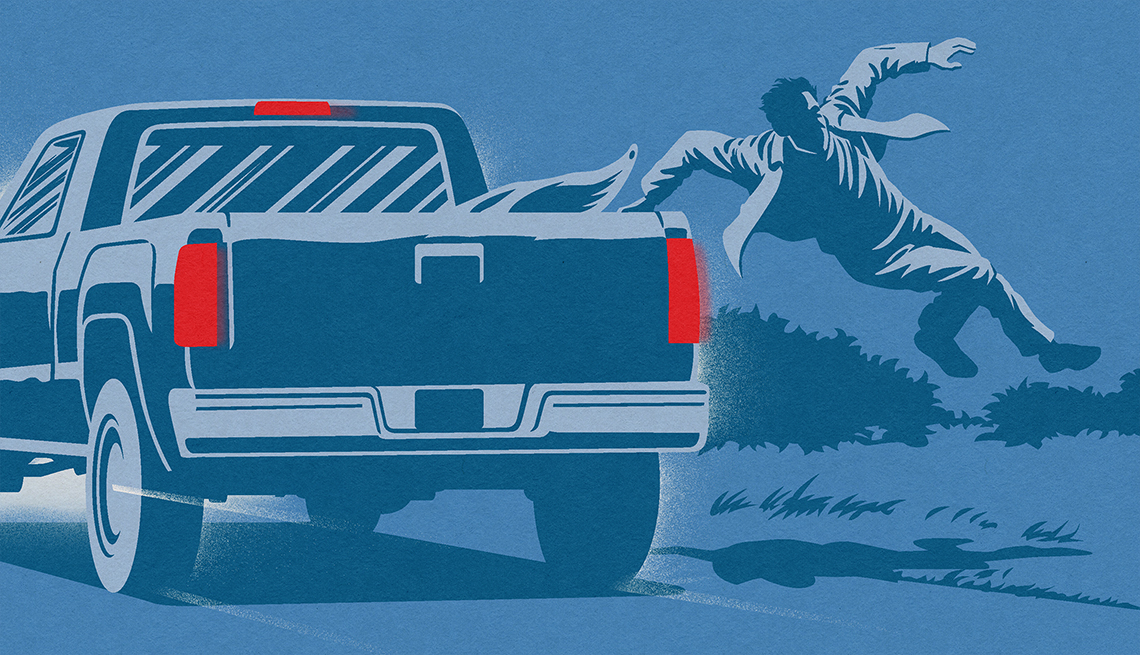
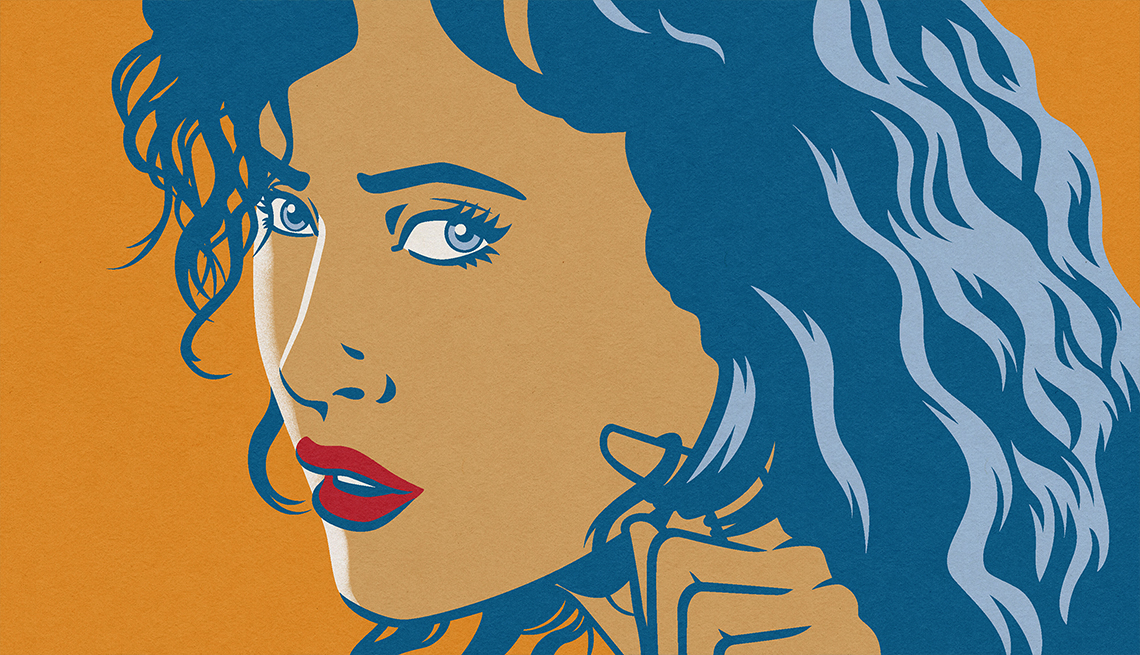

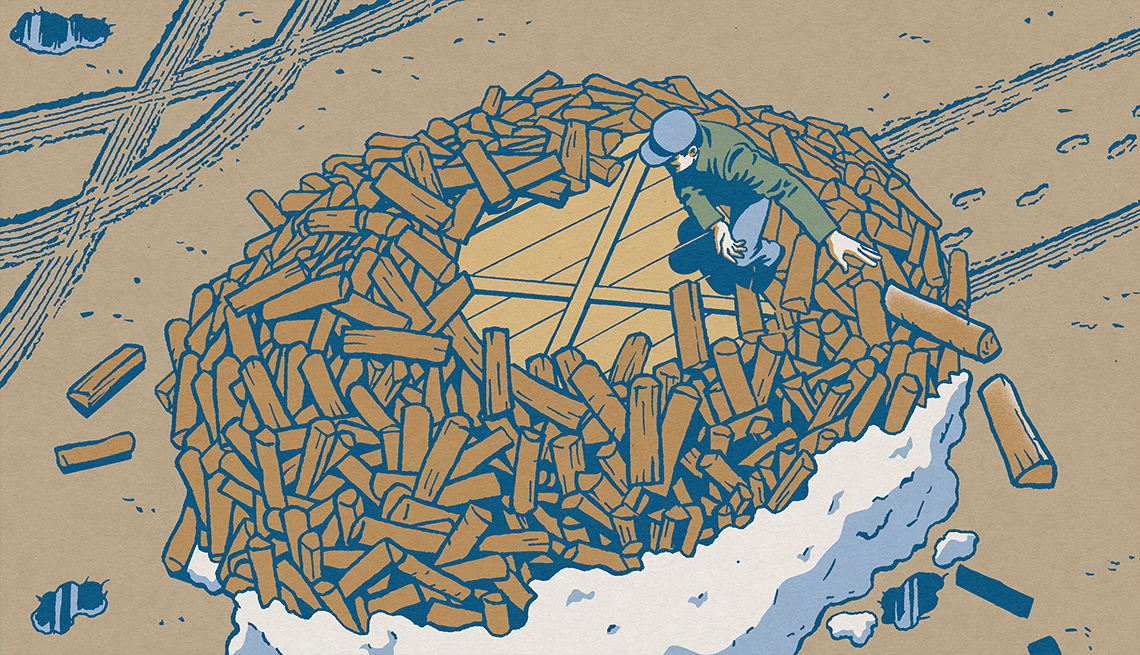
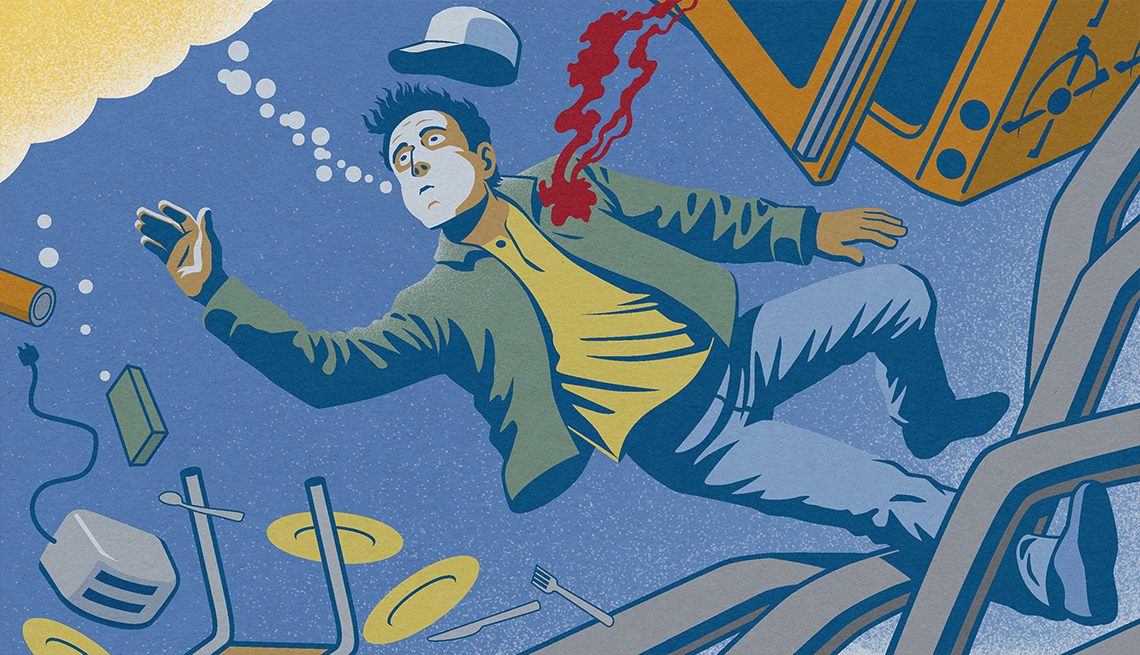
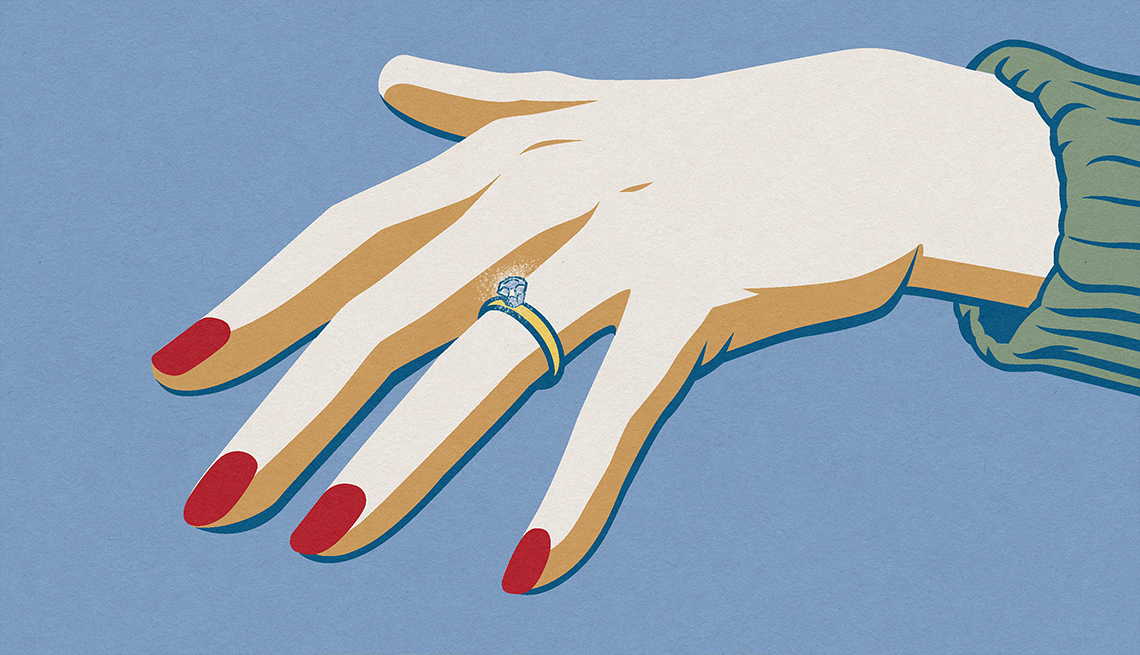
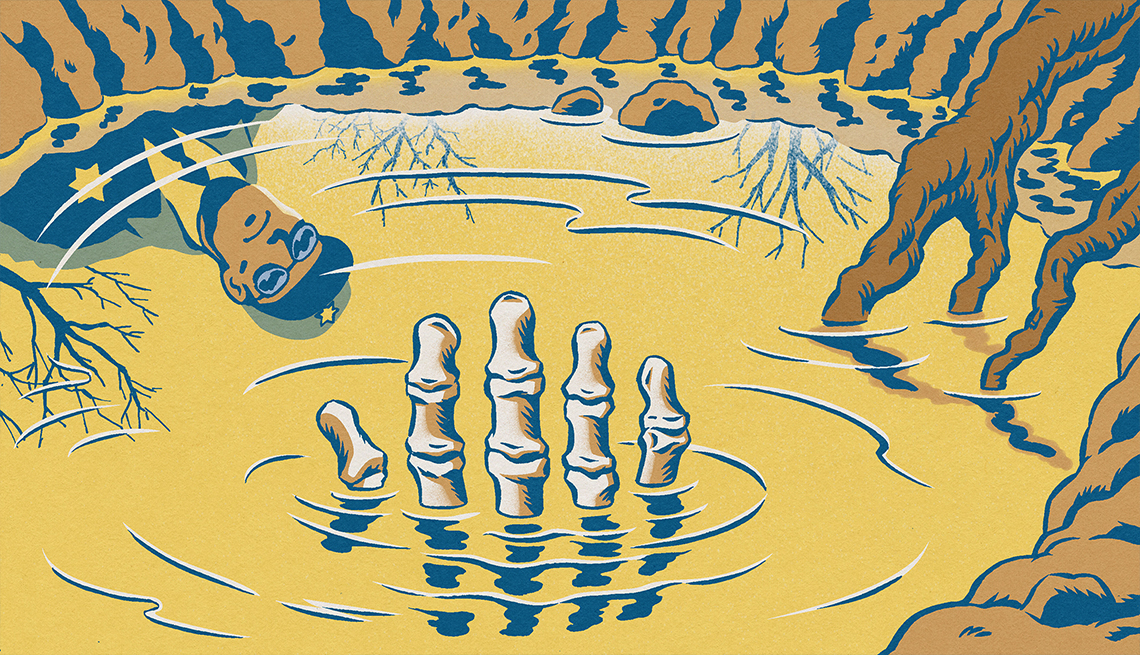
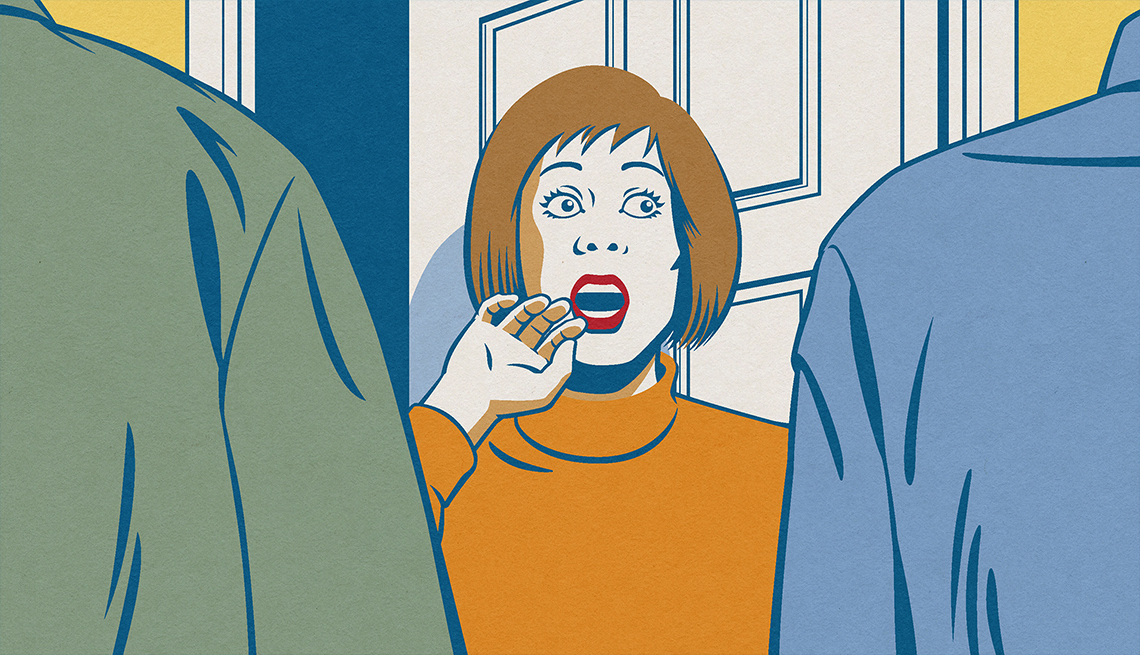
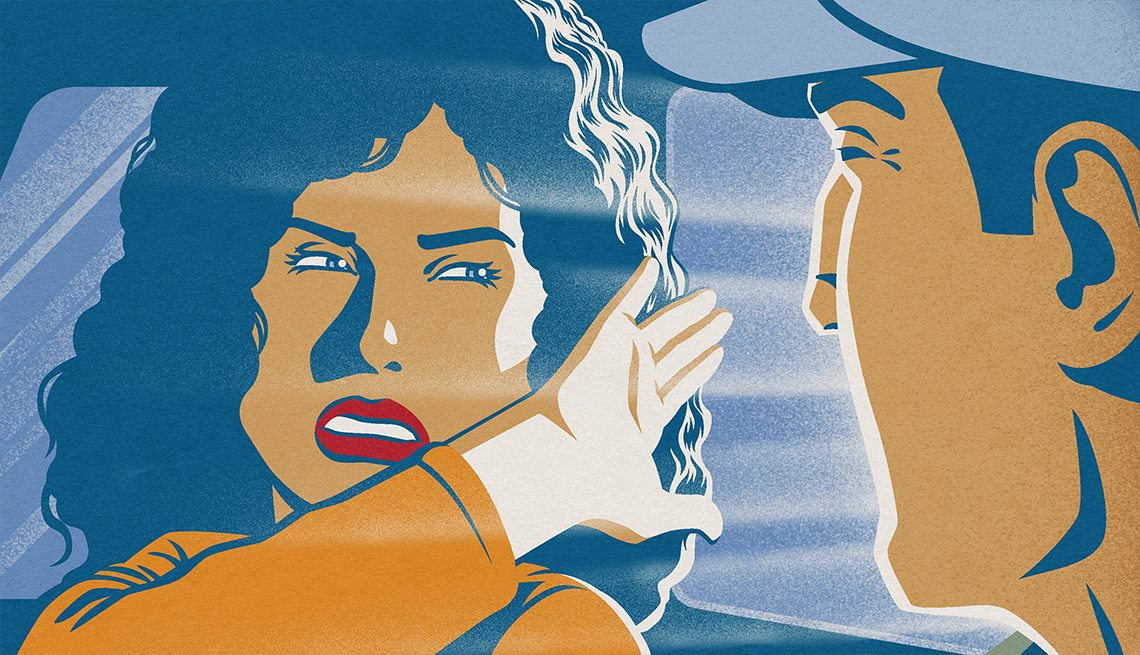
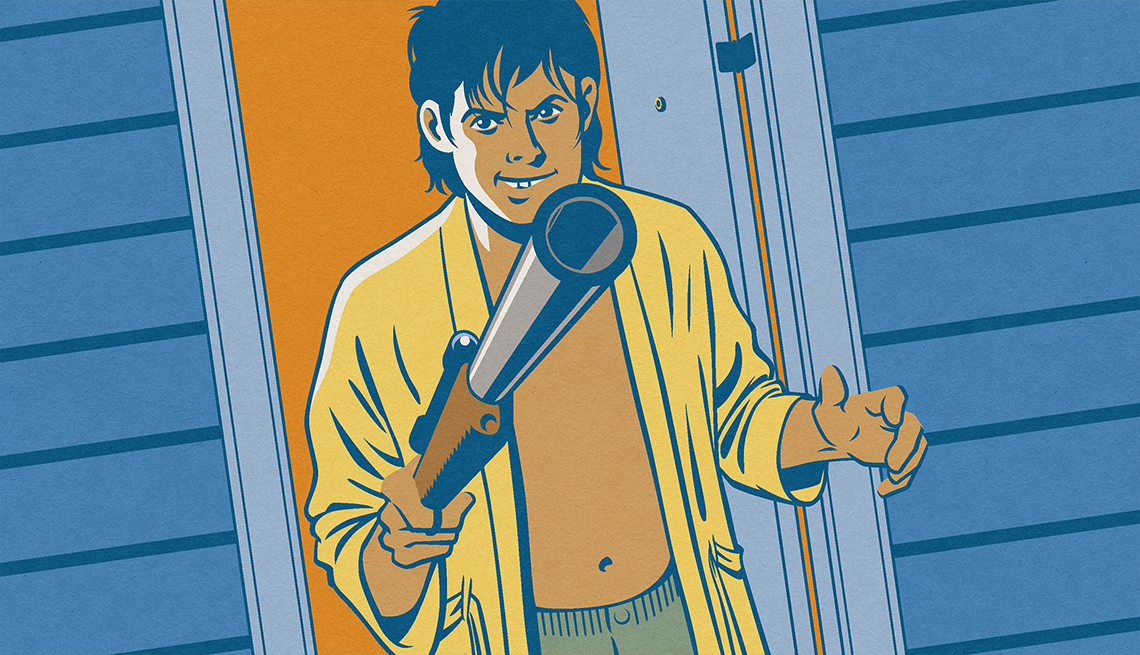
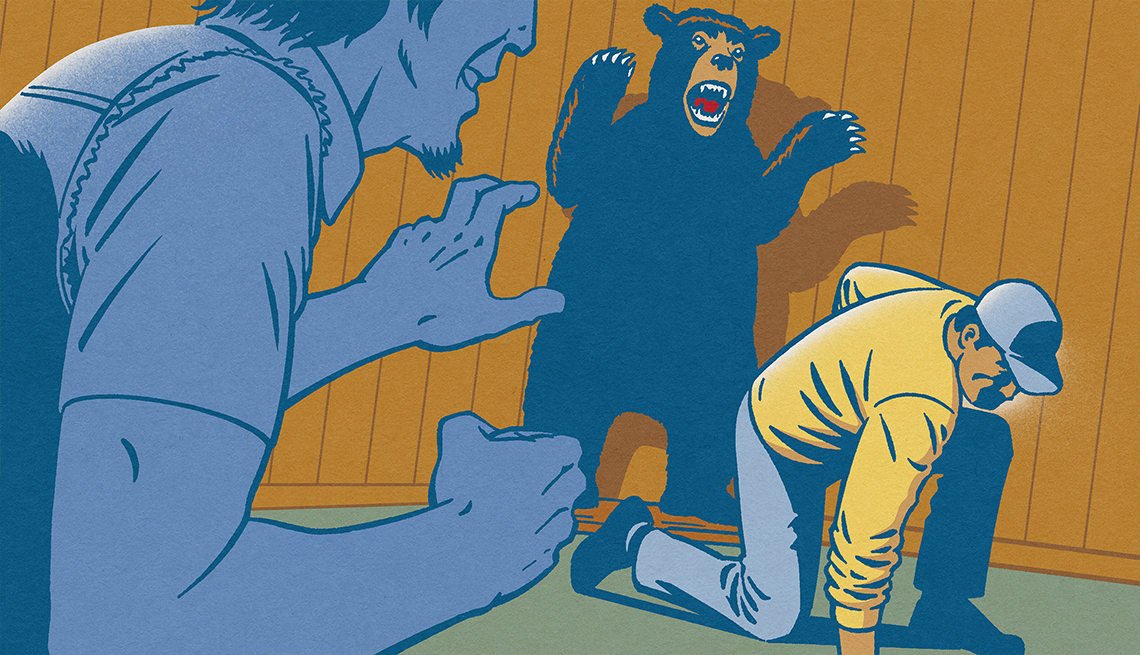
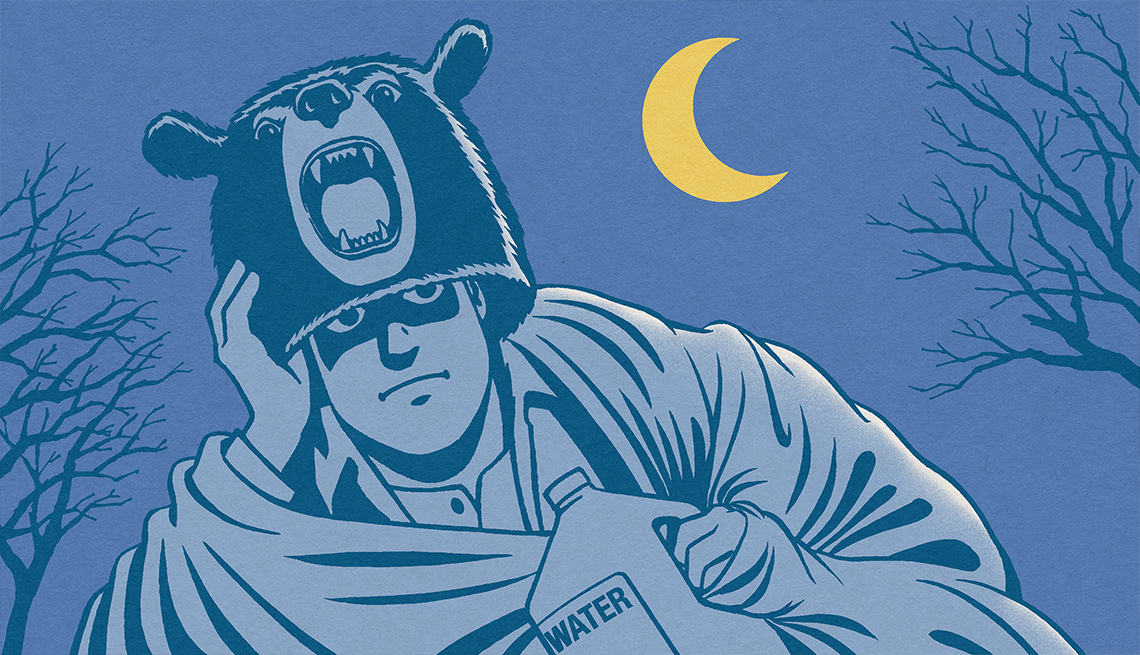
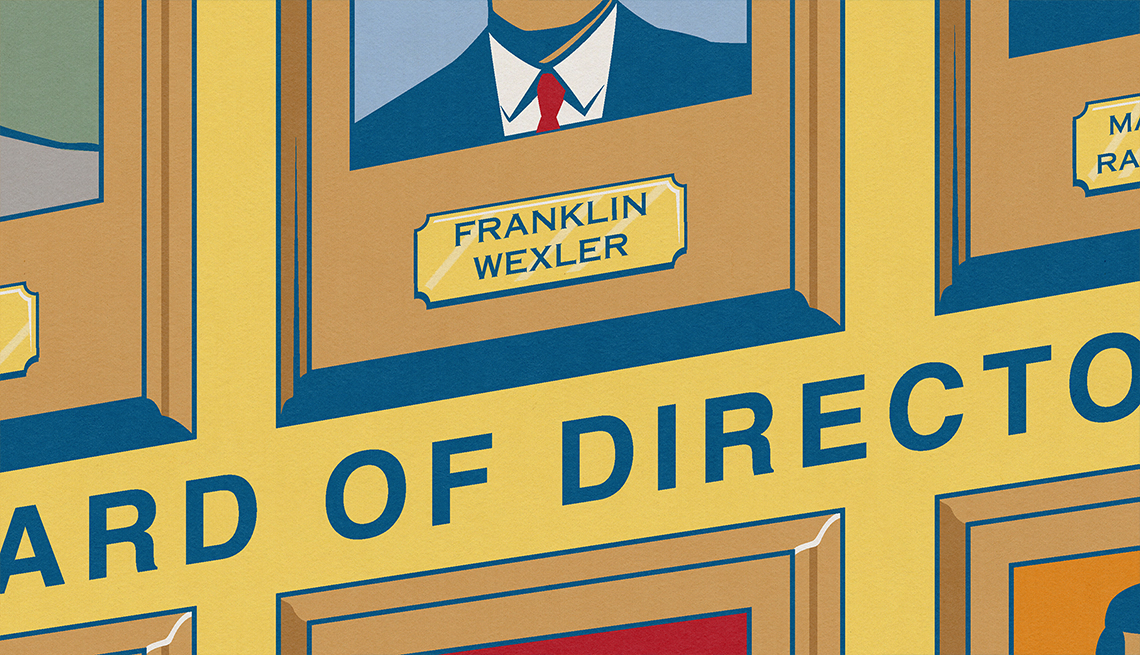
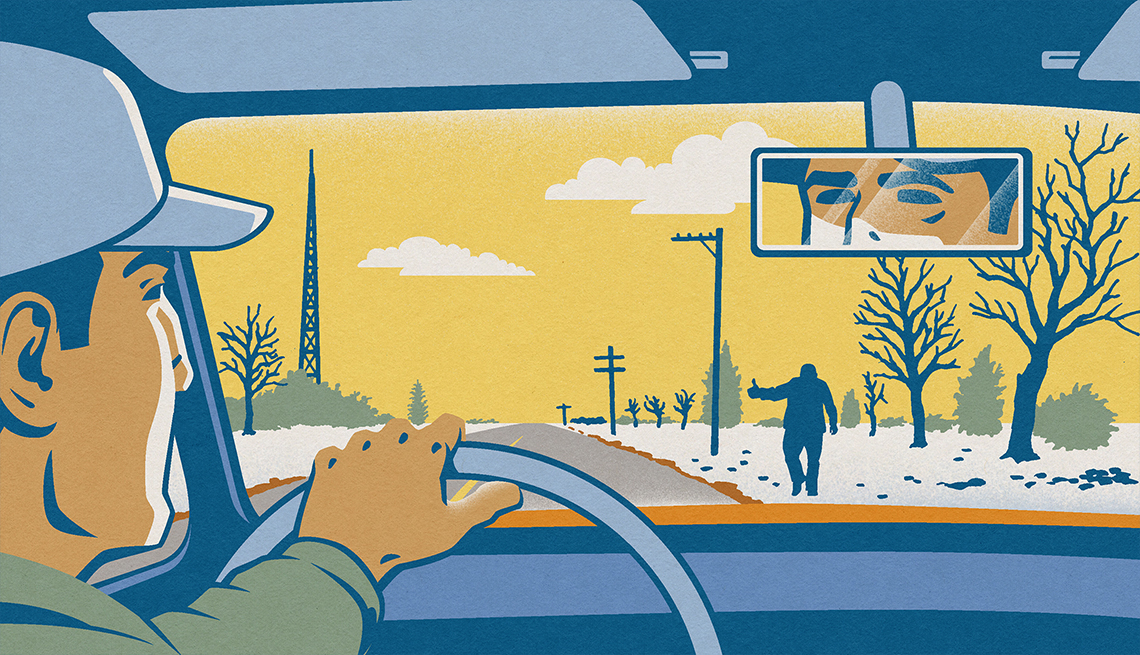
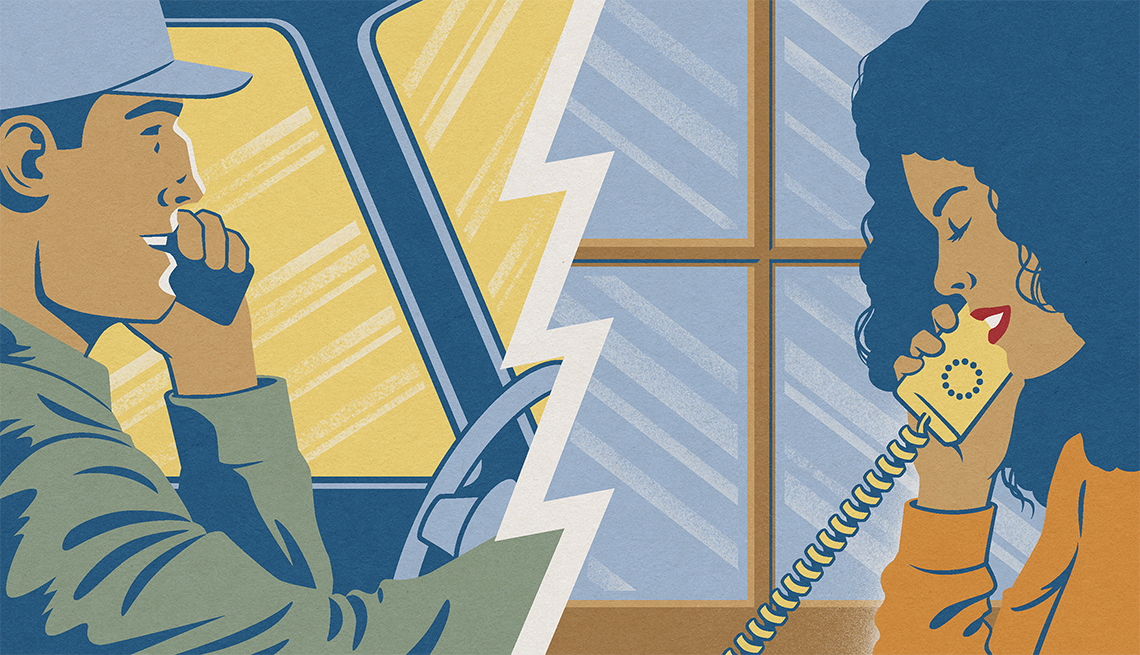
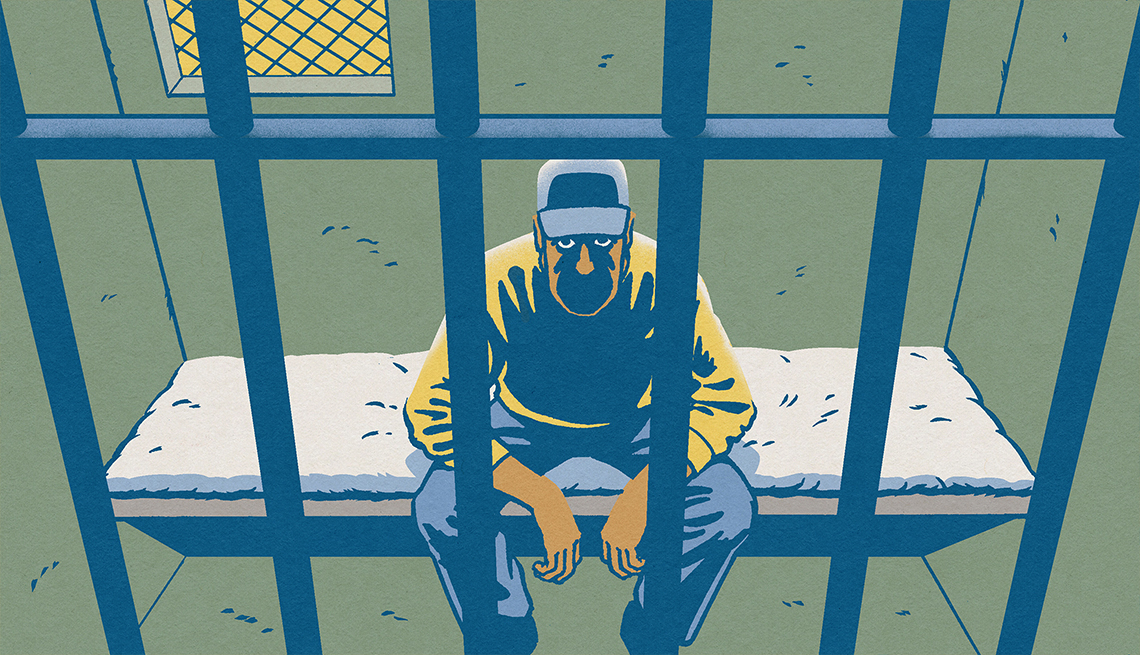







More From AARP
Free Books Online for Your Reading Pleasure
Gripping mysteries and other novels by popular authors available in their entirety for AARP members